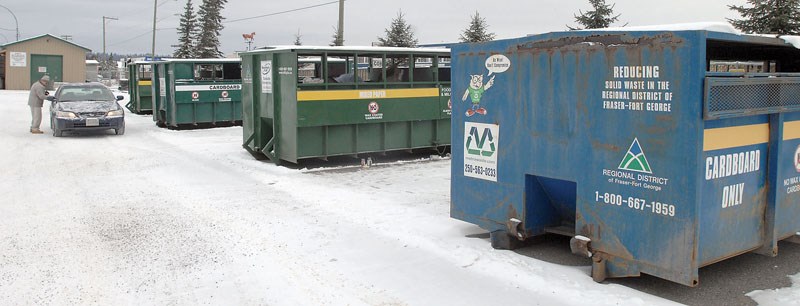The group responsible for organizing the new province-mandated recycling program has clarified its stance on financial penalties that local politicians found troubling.
Last month, city council voted to turn down an offer from Multi Material BC (MMBC) to take control of the city's curbside recycling. Instead, the city will opt for MMBC to put the service out to tender for a private contractor.
Chief among council's concern was the inclusion of a penalty in the service agreement that would assess a $5,000 per load fine for loads that have more than the allowable amount of non-recyclable material.
"From my perspective, having council vote unanimously against partnering with MMBC was a good move and had to have been a wake up call for MMBC," said Coun. Brian Skakun.
MMBC managing director Allen Langdon said their goal was always to foster a working relationship.
"Our intent was to ensure that people understood this was important and to encourage them to work with us to address the problem of contamination," he added.
The organization has since updated their service agreements to include a cap of 24 loads per year that could be penalized for having too high a contamination rate.
By introducing the cap, Langdon said it helps give municipalities, who have until Sept. 16 to accept or decline MMBC's offer, some context.
"I think it was to provide a worst-case scenario for people who otherwise would potentially create their own worst-case scenario which may not be realistic," he said.
During their Aug. 29 deliberations, Coun. Cameron Stolz, who chairs the regional district's committee on the recycling recommendations called the financial penalties "ridiculous and over the top."
The city had estimated up to $2 million in fines per year if its 15 biweekly loads were penalized.
The change won't make any difference to the city's decision. Staff forecast a cost of $1 million per year to operate a curbside recycling service while the collection incentives offered by MMBC and education and administration top ups would only total about $781,000.
Other changes since made to MMBC's service agreement include clarifying reporting requirements - only a total of five per year - and the introduction of language that expanded the termination for convenience clause to include both the local government as well as MMBC.
The Regional District of Fraser-Fort George has yet to formally make a decision on the MMBC offer of financial incentives to operate drop-depot recycling services. On Thursday, the environment and parks standing committee will recommend the board of directors turn down the offer.
"We do recommend that the Regional District remain open to partnering with future service providers to locate drop-depot bins at our solid waste facilities should a practical opportunity present itself," said a report from RDFFG environmental services manager Petra Wildauer.
The regional district currently operates recycling depots at 17 locations at a net cost of more than $1 million annually.



